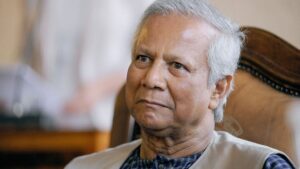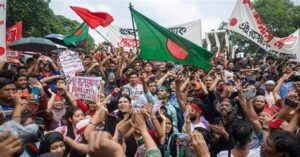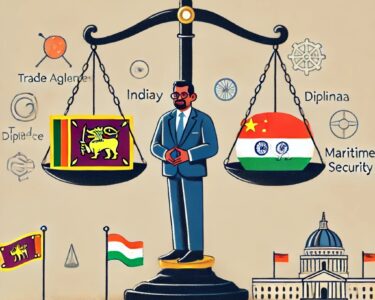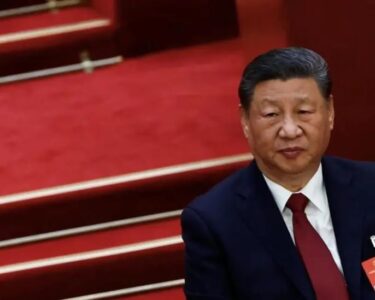Nobel Peace Prize winner Muhammad Yunus was appointed as the chief adviser of Bangladesh’s interim government on Tuesday. This happened a day after Prime Minister Sheikh Hasina resigned and fled the country following violent student protests.

Bangladesh President Mohammed Shahabuddin appointed Yunus after meeting with student leaders and military chiefs. Yunus, who is 84 years old, won the Nobel Peace Prize in 2006 for his work with Grameen Bank, which gives small loans to poor people in rural Bangladesh to help them escape poverty.
The student leaders wanted Yunus as the interim government’s chief adviser, and Yunus agreed. He is currently in Paris for a medical procedure and is expected to return to Dhaka soon. There was no immediate comment from Yunus about his appointment, and it’s not clear when the interim government will take over.
Earlier on Tuesday, President Shahabuddin dissolved the parliament to make way for the interim government and new elections. He also announced the release of opposition leader Begum Khaleda Zia, who had been under house arrest. Zia, a former prime minister, has had a long-standing feud with Hasina.
Sheikh Hasina is likely to stay in India until the UK grants her asylum, reports Republic TV.Meanwhile, Indian Air Force and other Indian security agencies are providing security to Hasina who is being moved to a safe location, ANI said quoting unnamed sources.
The student protests began over job quotas for families of veterans from Bangladesh’s 1971 independence war, which critics saw as favouritism towards ruling party allies. These protests led to significant violence, resulting in about 300 deaths and thousands of injuries since July.

On Monday, demonstrators looted the prime minister’s residence, but the streets of Dhaka were calm on Tuesday. Many schools and businesses remained closed due to the unrest, but garment factories, crucial to the economy, were set to reopen on Wednesday.
Hasina’s departure marked the end of her 15-year second term in power. She had been in power for 20 of the last 30 years, leading a political movement started by her father, Mujibur Rahman, who was assassinated in 1975. Since the early 1990s, Hasina had alternated power with her rival Khaleda Zia, whose political movement was inherited from her husband, Ziaur Rahman, who was assassinated in 1981.







